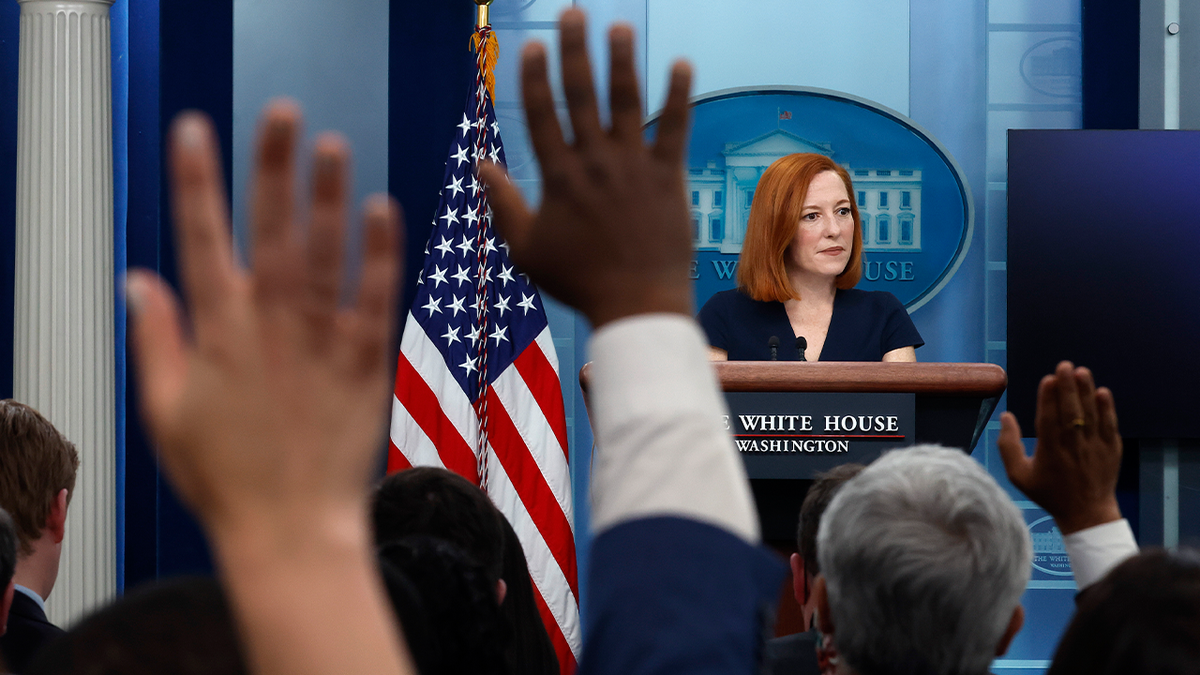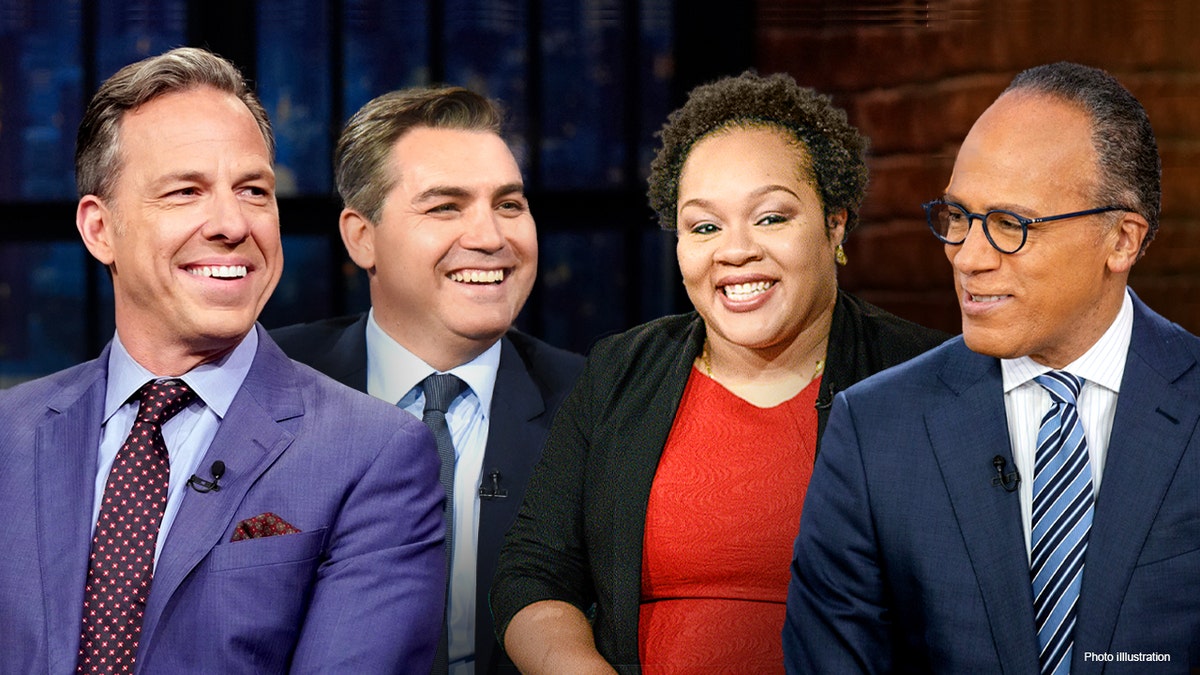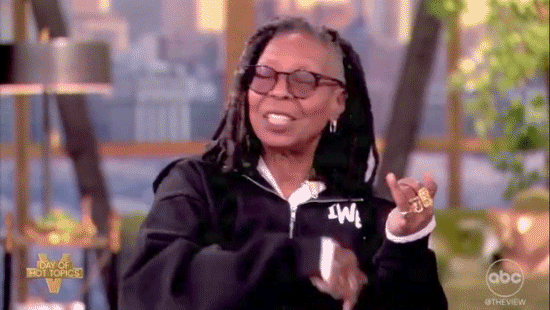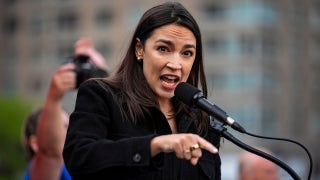Do Americans trust the mainstream media?
Fox News host Lawrence Jones took to the streets in NYC to find out what Americans think of the media, Fox News contributor Joe Concha and former Biden surrogate Kevin Walling react to their responses on 'Cross Country.'
A new survey shows an astonishing disconnect between the general public and American media members on what constitutes fair journalism, but one network news insider thinks there is an explanation.
A recent Pew Research Center study indicated that 55% of journalists surveyed "say that every side does not always deserve equal coverage in the news," including 61% of online journalists and 63% of those aged 18-29. However, 76% of American adults overall believe journalists "should always strive to give all sides equal coverage." Just 22% of adults took the view that every side doesn't deserve equal coverage.
The survey also found that journalists with a left-leaning audience were far more likely to say not all sides deserve equal coverage (69%) than those with a right-leaning audience (42%).
While conservative critics who spoke with Fox News Digital said the results indicted the media, a network news insider said there were nuances to the question that could account for such a different view.
POLL FINDS MAJORITY OF JOURNALISTS DON'T THINK ALL SIDES ALWAYS DESERVE EQUAL COVERAGE
"It may be that if you're asking the public, they're looking at it as Republican versus Democratic," they told Fox News Digital. "As far as issues go, you know, if we're talking about the economy, if we're talking about the causes of inflation, I think you definitely should have both sides talking… You certainly should show both sides in any policy debates that a news network has on the news portion of their network. Of course, the primetime and opinion hosts can do what they want, but certainly a network as a whole should show both sides of social issues, even social issues that are divisive."

Then-White House press secretary Jen Psaki takes questions from reporters during an April 2022 briefing. (Chip Somodevilla/Getty Images)
It's incumbent upon news outlets to contextualize such debates, they said, such as if there is a debate on universal background checks on gun purchases by spotlighting polls showing broad public support for such measures. But that also goes for some issues that liberal media members might be out of touch with the public on, such as the debate over whether biological males who have transitioned should be allowed to compete athletically against girls and women.
"If you're talking about other issues like the Penn swimmer [Lia Thomas], that's another issue where people are just afraid to talk about both sides, despite the fact over 80% of Americans don't think that young women should compete against swimmers who transitioned, male swimmers who transitioned after puberty. That's like an 80-20 issue. And yet you would think by listening to the media that's, you know, 80-20 the other direction," they said.
"So it's social issues that I've always found the media, the mainstream media has a harder time addressing both sides on regardless of whether the polls are really tilted dramatically in one direction or the other."
While record inflation, high gas prices and the ongoing Russian war in Ukraine are among the stories that continually most concern Americans this year, perhaps no saga has captured more fervent media attention than the Jan. 6 committee hearings investigating the Capitol riot and former President Trump's alleged role in the melee. In a series of scathing public hearings, Trump's conduct before, during and after the riot, all while making unfounded claims of having truly won the 2020 election, have been dissected and sharply criticized in the press.

Media set up before the House select committee investigating the Jan. 6 attack on the U.S. Capitol holds its second public hearing to reveal the findings of a year-long investigation, on Capitol Hill, Monday, June 13, 2022, in Washington. (AP Photo/Andrew Harnik)
For those who still embrace Trump's election claims, the insider had no sympathy and said there shouldn't be a forum for them in the name of fairness, while acknowledging the "growing distrust" in the media for the last generation on the right that preceded Trump's political rise. The media should talk about where Republicans are outside the mainstream on those issues and ones like those who support outright bans on abortion with no exceptions, they said, but also address any blind spots on issues where they show institutional bias, such as abortion, guns and transgender issues.
"People have a responsibility to not follow conspiracy theories like idiots, and people who choose to continue to believe the election was stolen… choose not to watch any of the January 6 hearings, choose not to listen to the most basic, basic facts," they said. "At the same time, there's been a growing distrust on the right for a generation, because the media has been biased."
Pew's writeup of its survey noted the issue of providing equal coverage to all sides of an issue gained intensity during the Trump administration, which saw a rise in adversarial journalism and an unprecedented mutual antagonism between the White House and mainstream media, and the wrenching COVID-19 pandemic.
ROE V WADE OVERTURNED: HOW THE MEDIA COVERED THE LANDMARK SUPREME COURT DECISION
"While some feel that equal coverage is always necessary to allow the public to be equally informed about multiple sides of an argument, those who disagree argue that people making false statements or unsupported conjectures do not warrant as much attention as those making factual statements with solid supporting evidence," Pew noted.

LATE NIGHT WITH SETH MEYERS (Photo by: Tyler Essary/NBCU Photo Bank/NBCUniversal via Getty Images via Getty Images) ( Lloyd Bishop NBCU Photo Bank | Scott Kowalchyk/CBS | William B. Plowman/NBC | Tyler Essary/NBCU Photo Bank)
Ostensibly non-partisan journalists like CNN's Jim Acosta and then-PBS reporter Yamiche Alcindor became Resistance heroes for their open criticism and on-air editorializing when covering Trump. More media figures have become comfortable wearing their views on their sleeve and dismissing previous notions of being the disinterested reporter.
NBC's Lester Holt won plaudits from his peers for declaring while accepting an award last year that "fairness is overrated," getting back-slaps from CNN's John Harwood and "Reliable Sources" for turning against what is often derided as "bothsidesism," and fellow NBC host Chuck Todd defended not bringing on skeptics of man-made climate change on a special about the subject.
The debate on the subject of trust in the media comes at a time of widespread disillusionment with American institutions, particularly in journalism. A Gallup survey this month found record-low confidence in television news (11% had a great deal of quite a lot of confidence) and newspapers (16%).
Politico's Jack Shafer wrote this week that such surveys aren't truly accurate, arguing reporting now is better than ever and wholesale transparency afforded by the press allows citizens to see the warts that have made them lose faith.
CLICK HERE TO GET THE FOX NEWS APP
"If the public has lost confidence in so many institutions, how did they come to that realization? It’s safe to say that they learned much of what they know about institutional failings from what they read in newspapers or saw on TV news. In this environment, even the common man becomes a hanging judge, especially when the press goes on trial," he wrote.









































